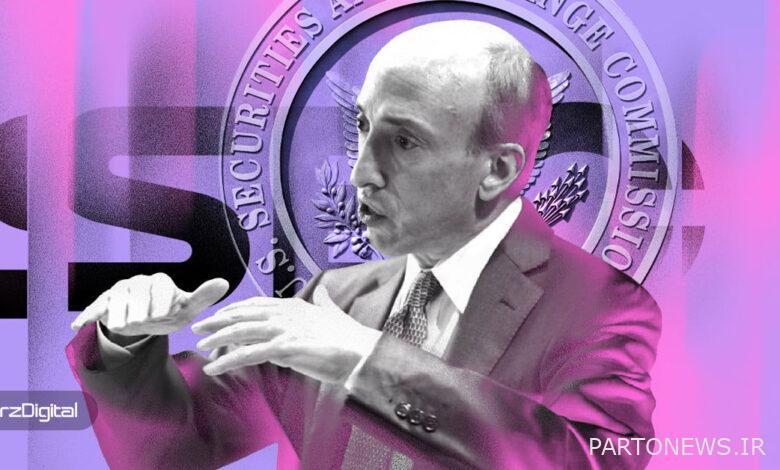Could the US Securities and Exchange Commission be behind the fake tweet confirming the Bitcoin ETF?

As the digital currency industry continues to wait for the approval of the first spot bitcoin ETF in the United States, the spread of fake news after the hack of the Securities and Exchange Commission’s X account caused a pump and dump in the price of bitcoin and a flurry of speculation about the regulator’s possible role.
To Report BINCrypto, the US Securities and Exchange Commission’s X platform account was hacked on January 9 (Dec 19) and fake news was published about the approval of spot bitcoin ETFs.
Was the purpose of delaying the approval of Bitcoin ETFs?
Minutes after this news was published, Securities and Exchange Commission Chairman Gary Gensler said, referring to the hacking of this user account, that “this tweet was published without permission” and added that “the agency has not approved the supply and trading of spot bitcoin ETPs.” Is”.
However, the sharp reaction of experts and observers of this industry was accompanied by speculation and conspiracy theories.
Many people accused Gary Gensler and the Securities and Exchange Commission of being involved in the hacking of the account and asked X’s owner, Elon Musk, to investigate. In response to these events, PlanB, the creator of the stock-to-flow prediction model, said:
Forget the front-running attack, agency insiders decided to completely manipulate the market and cause all leveraged long trades to collapse.
Cynthia Lummis, a pro-cryptocurrency senator from Wyoming, called for clarification:
Fake news like the one published in the X account of the Securities and Exchange Commission can manipulate the markets. We need clarification about these events.
Gabor Gurbacs, Teter and Van Eck strategist, also raised this question:
What if it was the work of insiders? Is the only way to stop or delay approval of bitcoin spot ETFs is to create an event like this.
JAN3 CEO Samson Mow also stated that the US Securities and Exchange Commission will delay approval of all bitcoin spot ETFs until the second quarter of 2024. However, the news was fake and that tweet has now been deleted.
At the same time, Eric Balchunas, an analyst at Bloomberg ETF, conducted a poll asking “whether or not it was an insider’s job.” More than 83% of the 12,100 respondents think that the Stock Exchange Commission was involved in this incident.
Of course, Bloomberg ETF analyst James Seyfarth pointed out the funny side of the story. By reposting a tweet from the US Securities and Exchange Commission, he said that the agency itself is the best source of information.
Inactive two-step authentication
To Report Platform X’s security team, Cointelegraph, announced that the US Securities and Exchange Commission had not enabled two-factor authentication (2FA) for its user account, and the issue allowed the hacker to gain access to it.
The team wrote that the hacking of the Stock Exchange Commission account occurred because an unknown hacker gained control of the phone number associated with the account and used it to access the account. This attack is known as SIM swap hack.
An analyst nicknamed the KoolCaleb (theKoolCaleb) with the release a tweet It has been claimed that a hacker made more than $1 million by opening a $20,000 long position with leverage of 1,000 on Bitcoin after the news of the approval of Bitcoin ETFs.
According to him, after denying this news, the hacker will profit about another $2 million by opening a $20,000 short position with a leverage of 1,000 on Bitcoin.
Bitcoin price pump and dump
The price of Bitcoin rose to $47,680 when the tweet was published, but fell to around $45,400 within an hour. Currently, this asset is trading in the $45,700 range, down about 2% from the previous day.
These fluctuations could be a picture of what will happen if Bitcoin ETFs are approved in January (Dec 20).
However, those who gambled with large amounts of money suffered heavy losses last night. Although Gensler had previously warned against the creation of FOMO, the SEC appears to have done the exact opposite in its mission to protect investors.

